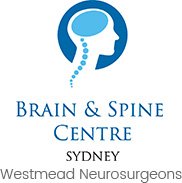Transient Ischemic Attack
A transient ischemic attack (TIA), also known as a mini-stroke, occurs when a blood clot temporarily blocks an artery, usually the carotid artery, supplying the brain. The symptoms produced are similar to a stroke, but last only a few minutes, and cause no permanent brain damage. TIA’s can be considered a warning sign for stroke and provides an opportunity to seek therapeutic or preventive measures.
Cholesterol build-up (plaque) can lead to narrowing of arteries and clot formation. Clots may also travel from other parts of the body, such as the heart, and lodge in a brain artery. Symptoms of TIA usually include temporary numbness, weakness or paralysis on one side of your body, speech difficulty, vision impairment, and loss of balance or coordination.
Transient ischemic attack may be diagnosed through a thorough medical and physical examination, blood pressure tests, sugar and cholesterol levels, and eye tests. Your doctor may also order imaging tests, such as CT and MRI scans with and without angiography (CT and MRI sensitive dye is injected into the artery for a clear view), ultrasound of the carotid arteries or arteriography (X-ray sensitive dye is injected into the artery for a clear view) to evaluate the arteries in the brain and neck.
After your examination, your doctor will decide upon treatment depending on the cause of the TIA. You may be prescribed medication to reduce clot formation. If imaging tests reveal areas of narrowing in the arteries, surgery may be required. These include angioplasty, where a small balloon carried at the end of a narrow tube is inserted to expand narrowed arteries, or endarterectomy, where an incision is made in the artery to remove plaque.
Your doctor will advise you on diet and lifestyle changes to reduce the chance of stroke.




